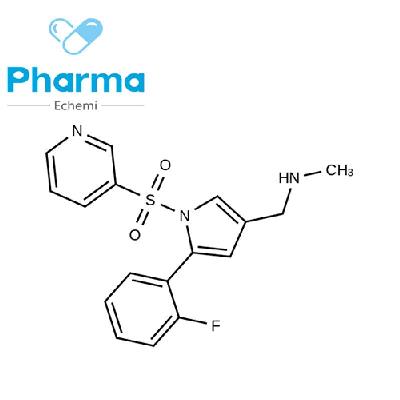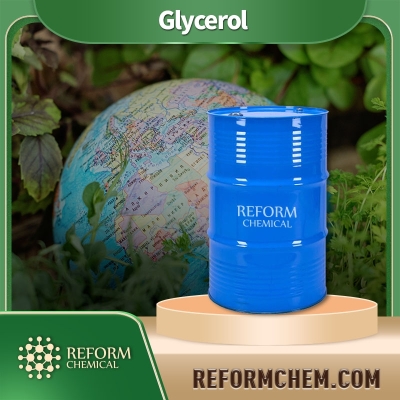-
Categories
-
Pharmaceutical Intermediates
-
Active Pharmaceutical Ingredients
-
Food Additives
- Industrial Coatings
- Agrochemicals
- Dyes and Pigments
- Surfactant
- Flavors and Fragrances
- Chemical Reagents
- Catalyst and Auxiliary
- Natural Products
- Inorganic Chemistry
-
Organic Chemistry
-
Biochemical Engineering
- Analytical Chemistry
-
Cosmetic Ingredient
- Water Treatment Chemical
-
Pharmaceutical Intermediates
Promotion
ECHEMI Mall
Wholesale
Weekly Price
Exhibition
News
-
Trade Service
Gastrointestinal stromal tumor (GIST) is the most common type of soft tissue sarcoma, with an annual incidence of about 20 cases per million people worldwide
.
Before GIST produced KIT tyrosine kinase inhibitor (TKI) drugs in this century, patients with advanced disease had a very poor prognosis due to the lack of effective drug therapy
.
KIT mutations were the first and most prevalent driver for the discovery of GIST, and with the development of the first KIT TKI, imatinib, revolutionized the treatment of patients with GIST disease
.
Molecular diagnostic tests can now identify driver mutations in 99% of GIST patients, and therapies have also been developed to treat different subtypes of GIST
.
Currently, the FDA has approved 7 drugs for the treatment of advanced GIST: imatinib (imatinib), sunitinib (sunitinib), regorafenib (regorafenib), ripretinib (ripretinib), avapritinib (avapritinib) Lini), larotrectinib (larotrectinib) and entrectinib (entrectinib), which are all TKIs
.
Although these drugs are very effective in the treatment of some subtypes of GIST, however, some rarer molecular subtypes still lack effective treatments, in addition, targeted therapy drugs can develop resistance, so clinical challenges still exist, and new drugs need to be developed Drugs that are safe and effective and overcome drug resistance
.
GIST Biology GIST can occur throughout the gastrointestinal tract, most commonly in the stomach (60-65%), followed by the small intestine (20-25%), rectum (3-5%), colon (1-2%), Esophagus (1%) and other parts (8-10%)
.
However, their specific molecular distribution and biology may vary between anatomical sites
.
Different GIST molecular subtypes are defined by individual driver alterations
.
Three major molecular subtypes, KIT mutants, PDGFRA mutants, or SDH deficiency account for nearly 95% of GIST patients
.
Various other rare molecular drivers include mutants such as NF1, PIK3CA, or RAS, and only about 1% of GISTs lack known drivers (Figure 1)
.
Figure 1.
Summary of GIST molecular subtypes.
Before 2000, there were no effective drugs to treat patients with advanced gastrointestinal stromal tumors
.
GIST has poor sensitivity to chemotherapy drugs used to treat other sarcomas
.
The only effective treatment for gastrointestinal stromal tumors in this century is surgery, either to treat localized disease or to relieve symptoms in patients with advanced GIST through selective resection
.
The discovery of KIT mutations in GIST in 1998 led to the idea that the development of KIT inhibitors might be effective in treating the disease
.
Around this time, imatinib was identified as a potent KIT TKI with activity against mutated forms of KIT and had undergone extensive clinical testing for the treatment of chronic myeloid leukemia (CML)
.
Imatinib is a multi-kinase inhibitor with ABL, KIT, PDGFRA and other kinase inhibitory activities, and is an ideal drug for the treatment of GIST
.
Therefore, imatinib as a treatment for GIST was evaluated in several phase II studies and subsequent several large international randomized phase III trials
.
In these studies, imatinib had a high rate of clinical benefit (70-84%) with a median PFS duration of 20 months
.
These results led to the FDA approval of imatinib for GIST in 2001
.
Currently, imatinib is the first-line treatment for GIST, and the median overall survival of patients with advanced GIST treated with imatinib has increased from 12 months to 4-5 years, with an estimated 10-year overall survival of 10-20 years.
%
.
However, up to 5% of patients are intolerant to imatinib, necessitating a change in therapy based on toxicity alone, and most patients with imatinib-sensitive GISTs develop resistance and ultimately malignant progression
.
The success of imatinib has had an important impact on the treatment and drug development of gastrointestinal stromal tumors
.
Other TKI therapies currently approved for the treatment of GIST were developed based on the limitations of imatinib, including sunitinib (sunitinib), Regorafenib (regorafenib), ripretinib (repretinib), avapritinib (avapritinib), larotrectinib (larotrectinib) and entrectinib (entrectinib) (Figure 2)
.
However, all targeted therapy drugs will develop resistance, so the treatment of GIST still faces continuous challenges, and it is also necessary to develop safer and more effective drugs to overcome drug resistance
.
Figure 2.
GIST Signaling Pathways, Drug Targets, and Currently Approved TKI Therapies Immunotherapy Immunotherapy approaches are highly effective in advanced tumors in certain tissues, such as melanoma, non-small cell lung cancer, and kidney cancer
.
However, immune checkpoint inhibitors, including as PD-1 monotherapy or in combination with CTLA4 antibodies, have so far shown only modest activity in GIST patients
.
For example, in a randomized phase II study of nivolumab versus nivolumab plus ipilimumab, the median duration of PFS was 11.
7 weeks in the monotherapy arm and only 8.
3 weeks in the combination arm, but 3 patients had PFS duration Over 1.
5 years, this suggests that an immunotherapeutic approach to GIST may be feasible if the pretreatment characteristics of these long-term responders can be determined and used to select patients for treatment
.
Similar to these clinical results, PD-1 or PD-L1 antibody treatment had no effect on tumor growth in a mouse model of GIST
.
However, the addition of anti-PD-1 antibodies to imatinib significantly delayed tumor growth compared with single-agent imatinib
.
Therefore, it may be feasible to test TKIs in combination with immunotherapy in clinical studies
.
The combination of the PD-L1 antibody avelumab and the KIT/PDGFRA TKI axitinib is currently in the Phase II AXAGIST study involving patients who progressed to advanced GIST after treatment with imatinib and sunitinib (NCT04258956)
.
ADCs Drugs In 2021, GPR20 was identified as a novel GIST-specific target antigen for ADC therapy
.
GPR20, a G protein-coupled receptor, was found to be strongly expressed in the vast majority of GISTs, but not in other non-malignant tissues or sarcoma types
.
Based on these findings, using a humanized anti-GPR20 antibody, a protease-cleavable maleimide-Gly-Gly-Phe-Gly tetrapeptidyl linker and an exatecan derivative topoisomerase I inhibitor payload (deruxtecan) was generated ADC drug DS-6157a (Figure 3)
.
Figure 3.
Mechanism of Action of DS-6157a In vitro and in patient-derived xenograft models, DS-6157a demonstrated antitumor activity against KIT-mutated GIST cells with or without secondary resistance mutations (Figure 4).
.
Currently DS-6157a is in Phase I clinical study (NCT04276415) in patients with advanced GIST
.
Of course the success of this approach will depend in part on the expression of GPR20, thus requiring the development of a diagnostic GPR20 immunohistochemical assay
.
Figure 4.
In vivo pharmacodynamic experiments of DS-6157a.
Summary The past few years have resulted in new strategies targeting GIST drivers other than KIT, providing an effective treatment for approximately 80-90% of advanced GIST patients
.
However, the limitations of current TKI therapy pose challenges for long-term disease control, and some subtypes of GIST are inherently insensitive to these drugs
.
Therefore, alternative approaches will be needed to better manage late-stage GIST
.
With the advent of novel therapies, such as ADCs, and immunotherapy, the optimal treatment sequence for GIST patients will continue to be refined
.
References 1.
New treatment strategies for advanced-stage gastrointestinal stromal tumors.
2.
Gastrointestinal stromal tumors.
3.
PD-1/PD-L1 blockade enhances T-cell activity and antitumor efficacy of imatinib in gastrointestinal stromal tumors.
4.
Identification and Therapeutic Targeting of GPR20, Selectively Expressed in Gastrointestinal Stromal Tumors, with DS-6157a, a First-in-Class Antibody–Drug Conjugate.
Clinical Data
.







